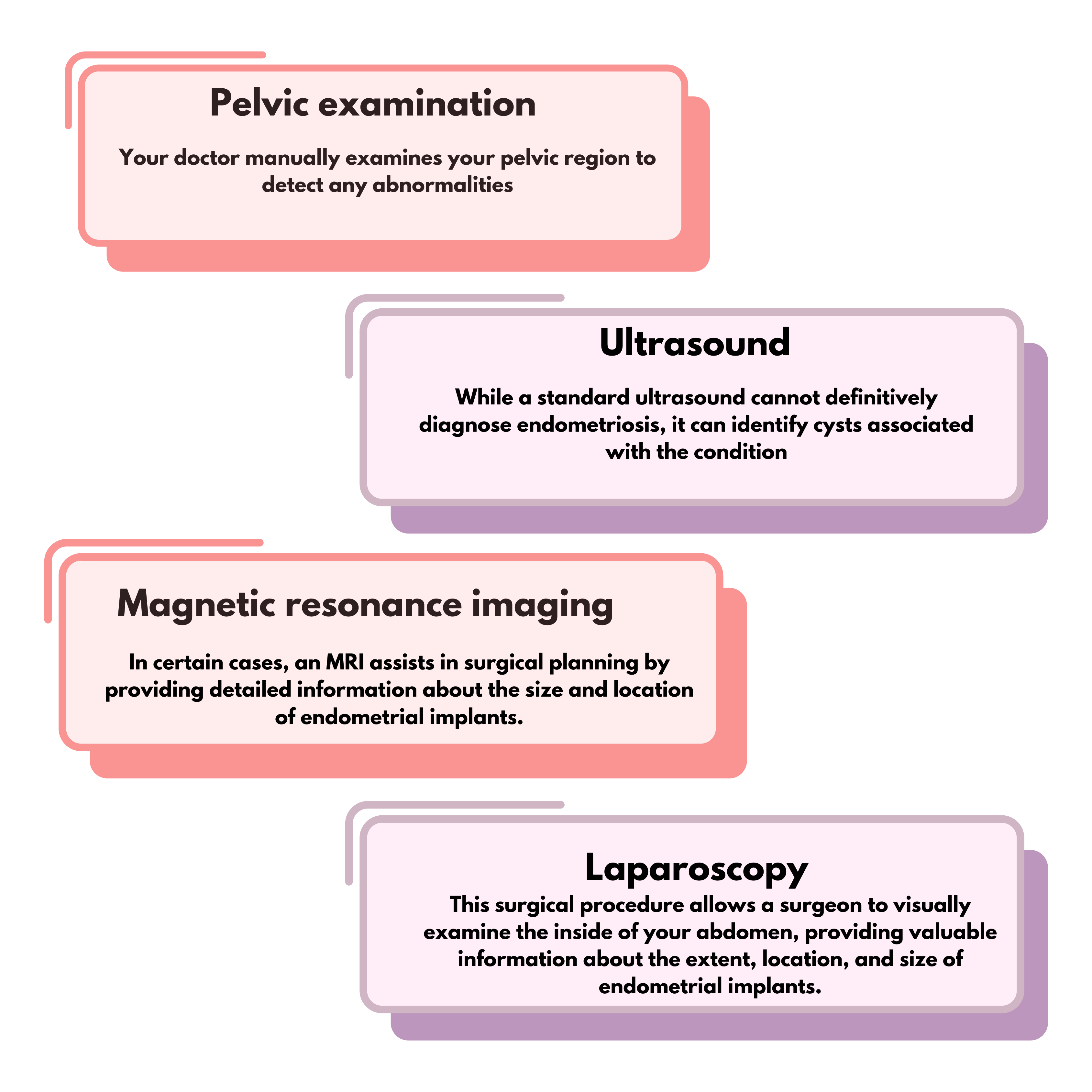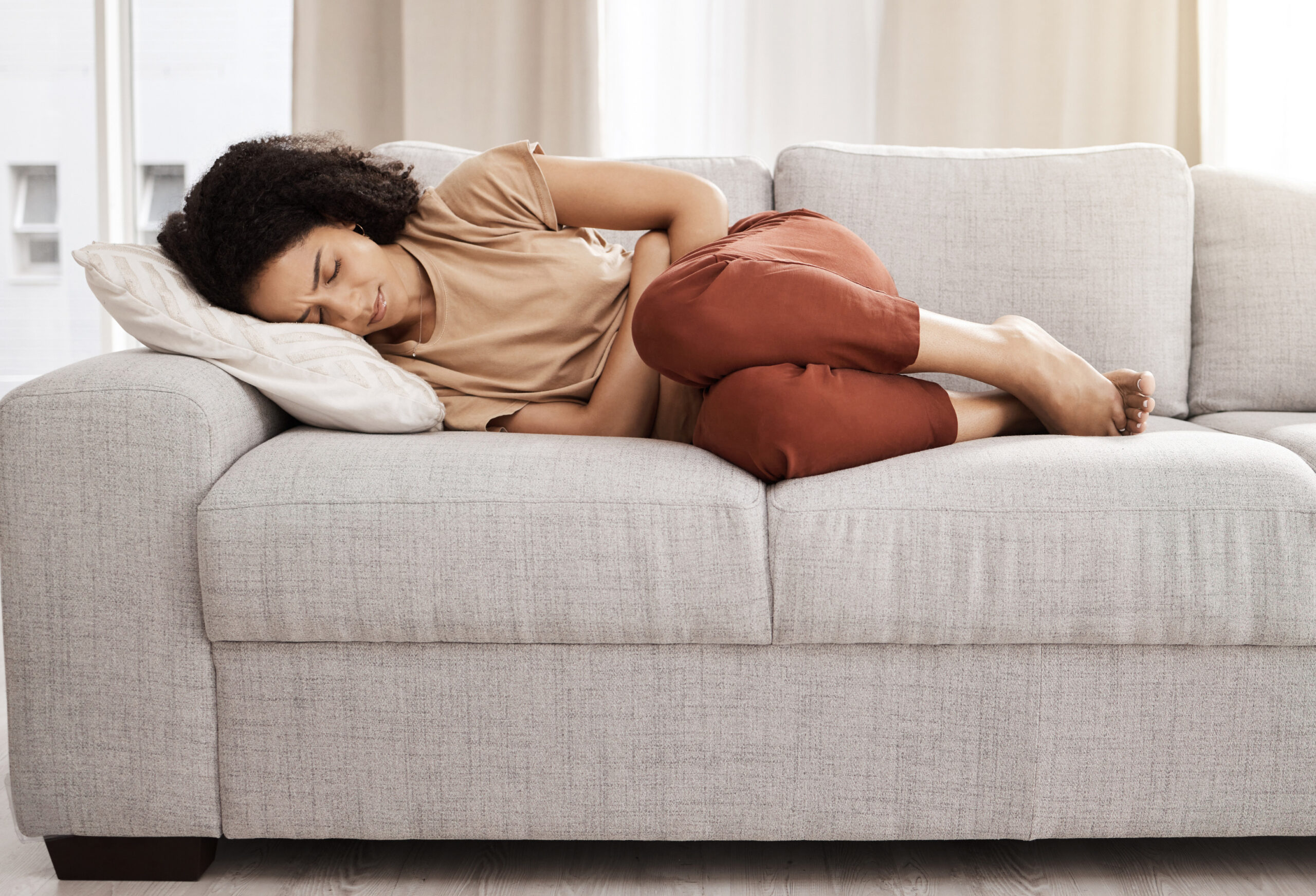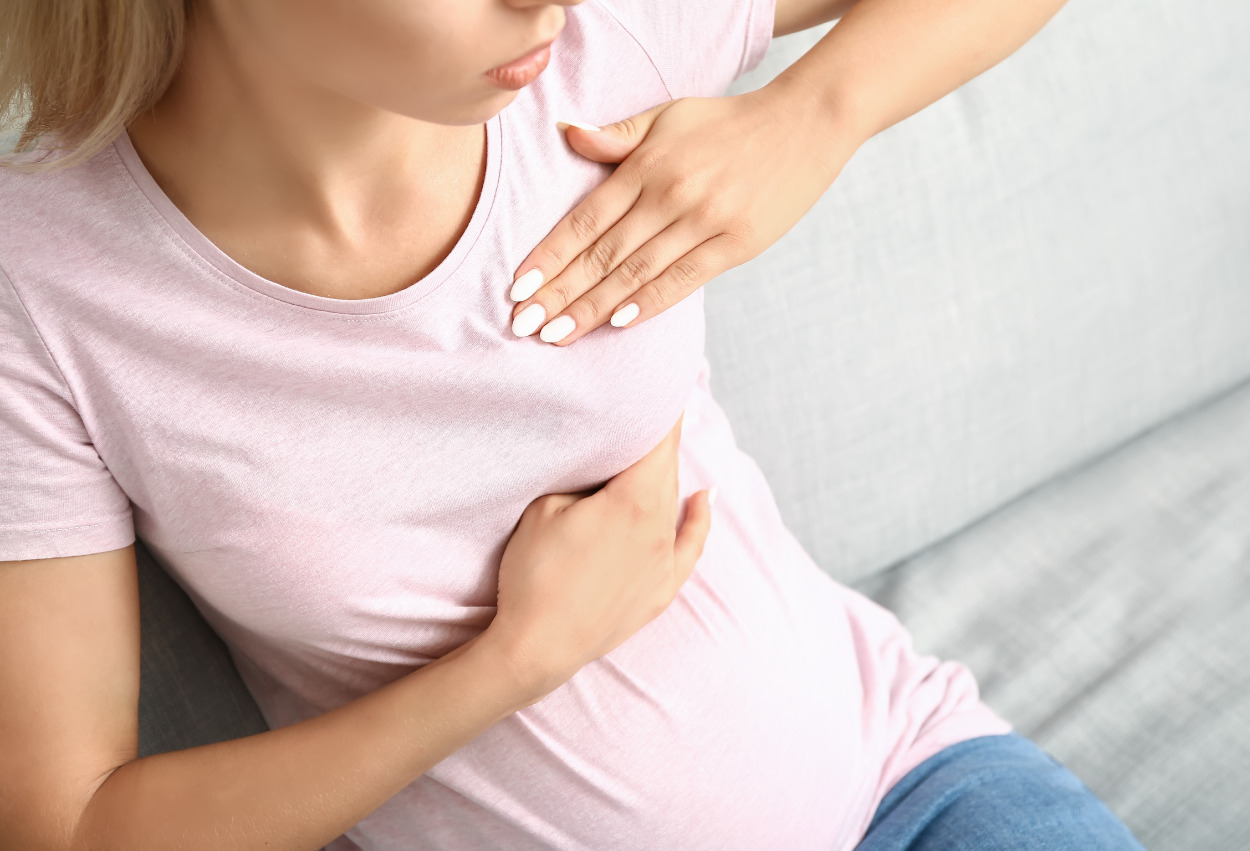Dr Ankita S
MBBS, MS, DNB OBGY
Are you experiencing excruciating pains every time during your periods? Well, it’s not likely a normal scenario.
You may be struggling through a condition called endometriosis. With endometriosis, the tissue that resembles the endometrium, which normally lines the lining of your uterus, grows outside of your uterus. Endometriomas, or endometrial cysts, can develop when endometriosis affects the ovaries.
Signs and Symptoms of Endometriosis:
- Painful periods
- Pain with bowel movements or urination
- Pain with intercourse
- Excessive bleeding
- Infertility
PCOS Vs Endometriosis
PCOS (Polycystic Ovary Syndrome) and endometriosis are two distinct medical conditions that can affect women’s reproductive health. PCOS is a hormonal disorder that can lead to issues like irregular periods, excessive hair growth, weight gain, and fertility problems.
Endometriosis, on the other hand, is a condition where tissue similar to the lining of the uterus grows outside of it, often causing painful periods, chronic pelvic pain, pain during intercourse, and infertility. This misplaced tissue responds to hormonal changes and bleeds during menstruation, causing inflammation, scarring, and adhesions in the surrounding organs.
While both conditions can cause fertility issues, PCOS is characterized by irregular ovulation and menstrual cycles, while endometriosis can lead to structural abnormalities in the reproductive organs. The diagnosis of PCOS and endometriosis requires a medical evaluation, including physical exams, imaging tests, and blood tests.
Does Endometriosis occur in PCOS women?
While PCOS and endometriosis both impact the reproductive system, they exhibit distinct menstrual symptoms, but there is a chance that their effects on menstruation and fertility may also be similar.
Due to a thickening of the uterine lining, irregular or skipped periods—a typical PCOS symptom—can cause severe bleeding during menstruation.
Long-term infertility can result from both PCOS and endometriosis; however, PCOS affects fertility mostly due to hormonal imbalances and physical polycystic ovaries, whereas endometriosis affects fertility primarily due to physical obstructions.
Treatment plans for Endometriosis

A Piece of Counsel
References
Frequently Asked Questions
No, endometriosis and PCOS are two distinct medical conditions that affect women's reproductive health. Endometriosis involves the growth of tissue similar to the uterine lining outside of the uterus, while PCOS is a hormonal disorder that can cause irregular periods, excessive hair growth, and fertility issues.
Yes, women with PCOS can develop endometriosis. While they are separate conditions, there is a chance of overlapping symptoms, and both can impact menstruation and fertility.
Common symptoms of endometriosis include painful periods, pain during intercourse, and infertility. PCOS symptoms can include irregular periods, excessive hair growth, weight gain, and fertility problems.
The diagnosis of endometriosis and PCOS requires a medical evaluation, including physical exams, imaging tests, and blood tests.
Yes, both endometriosis and PCOS can cause fertility issues, but they affect fertility in different ways. PCOS mostly impacts fertility due to hormonal imbalances and physical changes in the ovaries, while endometriosis primarily affects fertility due to physical obstructions and inflammation caused by misplaced tissue.
Dr Ankita S
MBBS, MS, DNB OBGY
Varshini
M.Tech Food Biotechnologist
Varshini
M.Tech Food Biotechnologist
Related Blogs
- How to prevent Prediabetes from Turning into DiabetesSeptember 19, 2023
- Unravelling the connection: insulin Resistance and PCOSSeptember 8, 2023







